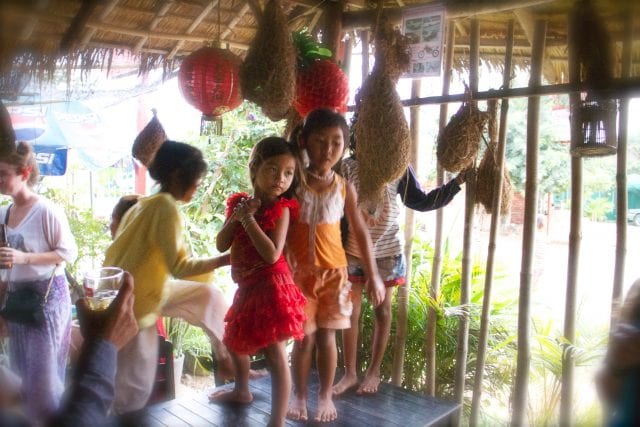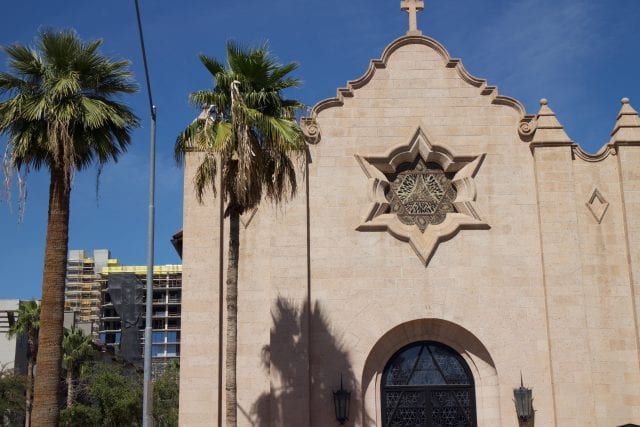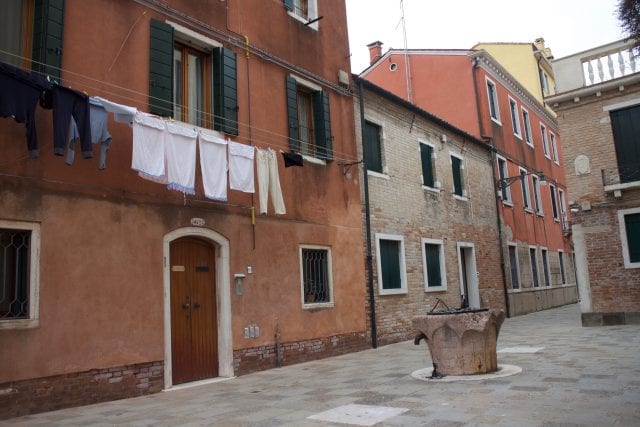This is the second installment of my responsible travel initiative that was spearheaded by a recent visit to Portland to stay with Hostelling International’s Portland Hawthorne location and attend their Global Goals Fair. You can read the first installment here.
Contents
Sustainable travel is something I really want all travelers to be more conscious about.
We are people that see more of the world than most, so we should also be the people who have the least amount of negative impact while traversing it.
Hostelling International’s #PackYourImpact campaign is targeting exactly that mission. The belief that we as travelers literally pack and unpack our impact as we move about is what this campaign is all about! #PackYourImpact is all about leaving a positive impact on every person and place we meet and visit!
To help to give you some actionable goals and steps towards becoming a more responsible tourist, I’m breaking down the UN’s Sustainable Development Goals that apply to sustainable tourism and how we as travelers can help to work towards each of them.

Reduced Inequalities: Reduce inequality within and among countries. [#10]
Unfortunately, as seen in many public displays, events and actions around the world, inequalities between genders, races, countries, sexual orientation, and income levels is vast, and a huge roadblock for countries trying to advance.
I’m not going to get into the current event politics that are related to this goal, instead, I’d rather focus on the bigger picture and help to shed some light on how we can become better global citizens and work towards a more equivalent world.
Inequalities, in this goal, is referring to different opportunities, different levels of support, respect, and even laws that are in place specifically to keep different groups of people from succeeding or progressing. Things like certain people not being able to marry the one they love due to a law or specific countries not being able to end their cycles of poverty due to trade restrictions or a lack of aid from developed nations.

Specifically, it is this: “By 2030, [we hope to] empower and promote the social, economic and political inclusion of all, irrespective of age, sex, disability, race, ethnicity, origin, religion or economic or other status.”
A key piece to understanding this goal, is to look at a country’s policies and actual government systems before choosing to venture between their borders. Making educated decisions about where to travel to and essentially where to give your dollars to is the very first step in helping to promote countries that are actually working to abolish inequalities and bring all human beings to equal playing fields.
The majority of you reading this are more than likely white, middle class Americans, Europeans, Australians, Canadians, etc. You come from a position of privilege, solely because of the color of your skin and where you were born. It is your responsibility to use it wisely.
Never miss an opportunity to vote in your home country. The USA has a great absentee ballot system, that allows you to still vote from outside of the country. But don’t stop at just the Presidential elections, look into the candidates for Mayor, Congress, etc. and make informed, smart decisions about your vote. Vote for candidates with a strong platform dedicated towards working to end inequalities among classes, races, etc. not those looking to fuel the divide. As citizens of developed countries, the more equal we become, the more united we can be to aid the rest of the world.
When traveling, help when you can. Don’t hesitate to teach someone a skill or language, show them a resource or even be that resource, every person in this world is fighting an uphill battle, every ounce of effort you put into helping someone who has been victimized and brutalized by unfair and unjust inequalities is one step in the right direction.
Things like volunteering to teach English, computer skills or even trade skills while traveling could give someone who didn’t have much opportunity a chance to ride above their predetermined path.
Supporting local schools while you travel is also a great way to help drive a country towards equality. Education is a key component in not only filling a country with individuals who have skills and knowledge to get better jobs and move a country’s industry forward, but it also fills a country with more forward thinking citizens which, on average, are more likely to push for the greater good.
There are tons of volunteer programs out there designed to help you volunteer in schools around the world. GVI, International Volunteer HQ and Maximo Nivel are just a few options, do your research and find a trusted volunteer experience!
Another option is to get a TEFL certification and then you can actually teach English around the world and get paid for it. For many countries, learning English is the ticket to working higher paying, often tourism centered jobs that can provide opportunities that aren’t readily available for non-English speakers.

Sustainable Cities and Communities: Make cities and human settlements inclusive, safe, resilient and sustainable. [#11]
In many parts of the world, your opportunities are predetermined based on what you are born into and specifically where you are born into. Many cities and communities lack the infrastructure to make healthy food, jobs, and schools accessible to the entire population. From a lack of bike paths to expensive or poorly designed public transportation, cities’ infrastructures can be their own worst enemies.
Even when cities have adequate public transportation systems but neglect to be inclusive in their design or layout, this still challenges the sustainability of that community. If a percentage of the population can’t actually get onto the bus, then it is a flawed system that is maintaining inequality.
Affordable and safe accommodations can often be another level of challenge in cities. You may think this is limited to only developing countries and cities that still have slums making up portions of their landscape, but even London with the Grenfell Tower burning, shows how dangerous and disruptive having inadequate legislation governing the use of certain materials can be on a community. Many of those living in that tower that managed to escape have had their lives turned upside down and now are using government resources in order to get back on their feet; those are resources that are now being taken away from steps forward.
How does all of this apply to travelers? No we can’t all be urban planners, or teach entire communities to recycle or to take public transportation, but we can take small steps along our adventurous paths to help work towards this goal.

Urban gardening initiatives are a great way to make a small, yet powerful impact. Look for organizations that are working to plant public urban gardens or even better there are non-profits popping up all over the place that are teaching impoverished community members how to start and maintain fruit and vegetable gardens. This goes back to that age old saying of, “Give a man a fish and he’ll eat for a day, teach a man to fish and he’ll eat for a lifetime.” I love this initiative and can’t wait to find a program in the next place I visit! Growing Gardens is a great volunteering initiative that you can get involved with!
When you’re traveling, take public transportation whenever possible. Even better, if you have a community that listens to you and you’ve figured out a challenging network of public transportation somewhere, write or record a guide to that region’s public transport. Many travelers resort to wasteful transportation methods like Uber and Taxis simply because they don’t know how the public transportation system works! Not only do you help to make that city more sustainable, but you’ll probably have a laugh or two at trying to figure the system out! Who knows you may make a friend in the person who tries to help you!

No Poverty: End poverty in all its forms everywhere [#1]
This is a lofty goal, but one that we can all take small steps each and every day to work towards. You’re going to witness extreme poverty in many corners of the globe. For me, Cambodia was literally the first country I went to outside of the USA and it is a country that is riddled with poverty. Child beggars swarm the streets, petty theft is prevalent and the inequalities in income and economic status are becoming greater and greater.
Unfortunately, in countries like this, no matter the guilt you feel or the pangs of sadness that wash over you, giving to child beggars, adult beggars, and everything in-between really only exacerbates the issue. In Cambodia, I saw over and over again tourists giving money to cute children that said they were hungry and then they’d run around the corner and deposit the cash into the hands of their “pimps”, that money isn’t going to their education, their stomachs or their livelihood, your money is teaching this man to go find more kids and use them.
If you absolutely want to help in these situations, actually buy them food or shoes or a t-shirt, etc. I started offering to buy bananas or other healthy food for kids who came up to me saying they were hungry, shockingly, many walked away from me mad.
Other ways to help combat poverty while traveling is to donate time or money to trusted organizations working to end it. This requires research and time, of course, to find a trusted organization that actually does what they say they’re going to.
If you want to learn more about poverty, and the things we can do as citizens of the world this TEDx Talk is a great place to start. To make an impact, consider an organization like Kiva that connects people with entrepreneurs in developing countries and allows you to actually make a donation or small loan (even as small as $25) to help them get their business off the ground!
This post is brought to you partially in collaboration with Hostelling International USA and specifically their HI Portland Hawthorne location, as always all thoughts are my own.

